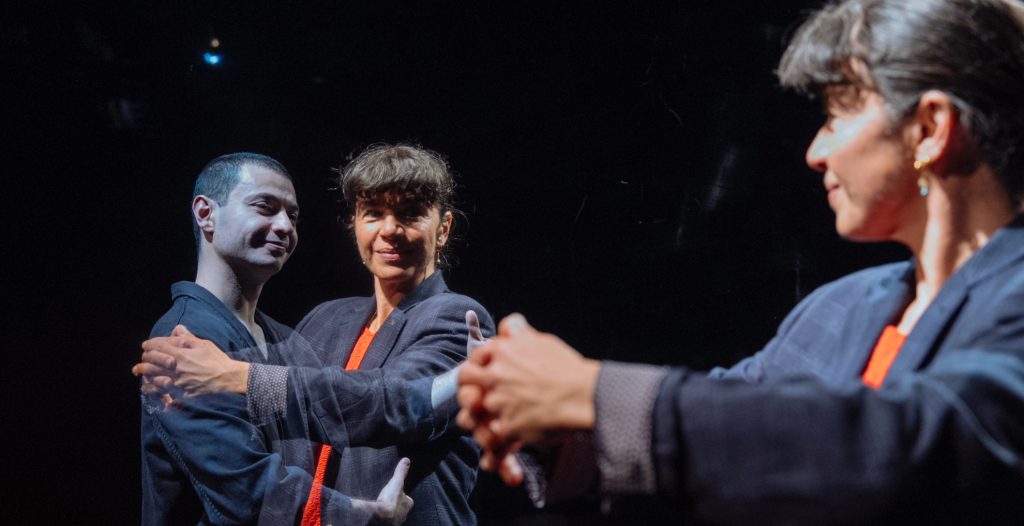This review was originally written for The Spy In The Stalls.
Sarah Ruhl’s epistolary play about poet Max Ritvo is a tender, witty meditation on life, art and mortality, delicately staged at Hampstead Theatre.
The friendship of Sarah Ruhl and her student Max Ritvo was lyrical, beautiful and tragically – horrendously – short.
Ruhl’s epistolary play, based on letters they shared during his studies at Yale and his final illness, is a labour of love, filled with scintillating disquisitions on ideas, poetry, the meaning of life, and soup.
On the return of his cancer at the age of 20, Max wrote to Sarah, “Maybe we’ll squeeze a great play out of what comes out of this.”
And so it has come to pass.
Playwright Sarah and poet Max also agreed to make a book out of their prolific, often witty, correspondence, a collection on which the play is based. She wanted it organised chronologically, he wanted the material sorted by theme, chronology doing him no favours. Chronology, in fact, being the enemy.
The world won’t love me back
But Max rarely concedes to despair. He is presented as garrulous, enthusiastic, voracious, confident and prone to wild, unembarrassed antics.
As his illness takes more of a grip, he states, “I love the world but it won’t love me back.”
In director Blanche McIntyre’s production, we have two performances that are delicate and calibrated. Sirine Saba, as Sarah, has the more subtle terrain to negotiate. Burdened with melancholy and worry, she is required to mark the slow death of Max’s brilliant mind but all the time rallying him to hope.
Eric Sirakian as Max swoops and hollers, he bounces and shouts his poetry, he racks, tortures and examines every facet of his existence … until he does not and cannot any more. (Max was 25 when he died in 2016.)

The pair occupy the stage for two hours but there is rarely a moment that does not busy the mind or heart. They are hypnotic performances of peculiar intimacy and warmth.
The third presence on the stage is Laura Moody, playing the cello. Such a brilliantly simple but evocative dramatic device with such a versatile instrument – rain, seagull screeches, plinky-plonk call-backs and swooping melodic snippets bring a third voice.
But what about the transparent screen that bisects the traverse stage, hanging like a curtain, insistent and intrusive? Sometimes the pair are one side of it, sometimes they are separated. It is initially awkward and needlessly annoying, but later thematically necessary.
Delivering on a promise
It indicates that dialogue, arising from letters, is not the organic to and fro as presented but chunked and illusory, separated by time and considered thought. It offers the necessary signal of separation, both momentary and, alas, permanently.
When the lighting changes, so does the nature of the screen. It can become a mirror, a barrier, no longer transparent, the reflections adding a mirage-like shimmer to flesh and blood. At one point, Max on one side, Sarah on the other, move their arms. On the screen, their reflections are holding hands.
- Review – The Habits, a magical tale of grief and friendship
- Review – House of Games walks a tonal tightrope
The play is plainly an act of obligation by the author, a promise delivered. The poem selections sometimes verge on abstraction, risking detachment. And the audience requires a certain fortitude as Max’s decline plays out with tortuous precision.
However, this is as much a play about life and living as it is death and grief. You cannot help but leave the theatre with a renewed obligation to feast on the fleeting opportunities of existence. Starting with a course of cello lessons, perhaps.
Letters from Max runs at the Hampstead Theatre Downstairs until 28 June 2025

